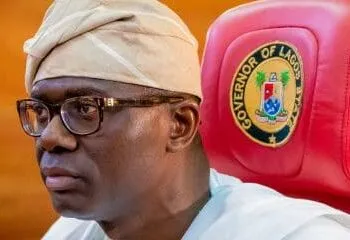As Nigeria moves to implement its N54.9 trillion 2025 budget, economic experts warn that former U.S. President Donald Trump’s pro-oil policies could jeopardize the country’s revenue projections. The budget is based on a $75 per barrel oil benchmark, but Trump’s “Drill Baby Drill” strategy aims to increase U.S. oil production, potentially leading to an oversupply in the global market and a drop in crude oil prices.
Potential Economic Impacts on Nigeria
According to Dr. Muda Yusuf, CEO of the Centre for the Promotion of Private Enterprise (CPPE), Trump’s energy policy could:
- Lower crude oil prices, making it difficult for Nigeria to meet its revenue targets.
- Escalate inflation as a weakened naira increases the cost of imports.
- Reduce Diaspora remittances, with Trump’s immigration policies affecting Nigerian workers in the U.S.
- Create a higher fiscal deficit, forcing the government to borrow more or cut spending.
Additionally, Trump’s withdrawal from the Paris Climate Agreement signals a shift towards fossil fuel investments, further weakening global oil prices. If he also influences OPEC’s production policies or resolves geopolitical tensions, such as the Russia-Ukraine war, global oil supplies could increase, pushing prices even lower.
Budgetary and Forex Challenges
Economic analysts warn that a crude oil price drop below $75 per barrel would lead to:
- Government revenue shortfalls, affecting salaries, infrastructure projects, and social programs.
- Further depreciation of the naira, increasing import costs and inflation.
- Higher borrowing by Nigeria, increasing the national debt burden.
Analyst Clifford Egbomeade predicts that a global oil surplus could drive the naira beyond N1,400 per dollar, further worsening economic conditions. Even though lower global oil prices might reduce petrol and diesel costs, a weaker naira could offset these benefits.
The Way Forward for Nigeria
To mitigate the risks, experts suggest:
- Accelerating economic diversification beyond crude oil.
- Boosting domestic production in agriculture, manufacturing, and services.
- Reducing reliance on oil revenue for budgeting and foreign exchange earnings.
Despite concerns, some analysts argue that Trump’s energy policies are being overestimated. They note that U.S. oil production has peaked and that the global market, including OPEC and U.S. producers, will adjust output to maintain price stability.
However, given Nigeria’s heavy reliance on oil revenue, the government must prepare for potential economic shocks in 2025.
Join Our Telegram Channel For Instant Notification













